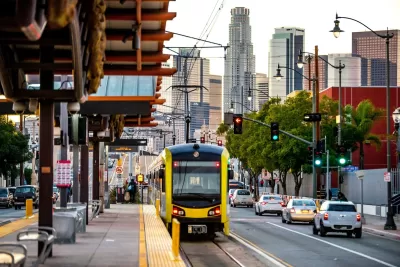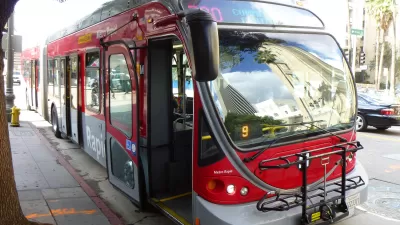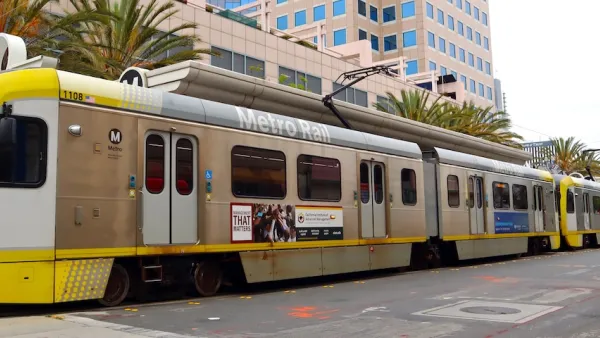The program issued ‘mobility wallets’ to 1,000 residents who took over 67,000 trips.

A one-year ‘universal basic mobility’ pilot project in Los Angeles is nearing its close, writes Maylin Tu in Next City, offering a model for how cities can improve mobility for low-income transit users, boost ridership, and reduce emissions.
Other cities have experimented with the concept of ‘transit wallets’ that give residents a fixed subsidy that can be used for any transit service or product (for example, recipients can save unused funds over several months to use toward purchasing an e-bike). In Los Angeles, the pilot program included 1,000 South Los Angeles residents.
“In addition to the mobility wallet, the pilot includes an e-bike lending library, an expansion of BlueLA, an electric vehicle car-share program and the installation of electric vehicle charging stations, among other initiatives.” Future phases will expand the program to another 2,600 residents from South L.A. and Los Angeles County, and Metro is working to secure federal funding for the program’s future expansion.
While the majority of trips using the program were taken on public transit, participants spent the most funds on ride-hailing and taxi services (likely because of their higher cost). “According to Metro, participants are taking the bus or train during normal commute times and taking ride-hailing services early in the morning or late at night, indicating that participants are using options like Uber and Lyft when transit options are less available.”
FULL STORY: America’s Biggest Universal Basic Mobility Experiment Is Taking Place in L.A.

Planetizen Federal Action Tracker
A weekly monitor of how Trump’s orders and actions are impacting planners and planning in America.

Map: Where Senate Republicans Want to Sell Your Public Lands
For public land advocates, the Senate Republicans’ proposal to sell millions of acres of public land in the West is “the biggest fight of their careers.”

Restaurant Patios Were a Pandemic Win — Why Were They so Hard to Keep?
Social distancing requirements and changes in travel patterns prompted cities to pilot new uses for street and sidewalk space. Then it got complicated.

Platform Pilsner: Vancouver Transit Agency Releases... a Beer?
TransLink will receive a portion of every sale of the four-pack.

Toronto Weighs Cheaper Transit, Parking Hikes for Major Events
Special event rates would take effect during large festivals, sports games and concerts to ‘discourage driving, manage congestion and free up space for transit.”

Berlin to Consider Car-Free Zone Larger Than Manhattan
The area bound by the 22-mile Ringbahn would still allow 12 uses of a private automobile per year per person, and several other exemptions.
Urban Design for Planners 1: Software Tools
This six-course series explores essential urban design concepts using open source software and equips planners with the tools they need to participate fully in the urban design process.
Planning for Universal Design
Learn the tools for implementing Universal Design in planning regulations.
Heyer Gruel & Associates PA
JM Goldson LLC
Custer County Colorado
City of Camden Redevelopment Agency
City of Astoria
Transportation Research & Education Center (TREC) at Portland State University
Camden Redevelopment Agency
City of Claremont
Municipality of Princeton (NJ)





























